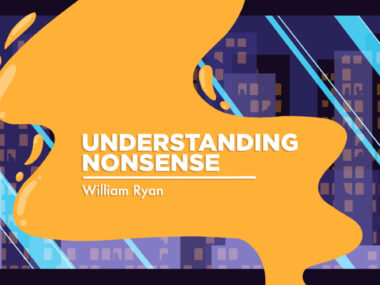My lived experience proves we need greater disability inclusion
Confronted with ableism, I've had to advocate for myself my whole life
Written by |

Because I was born with cystic fibrosis, my body has always operated differently from others. Most people don’t understand what I go through daily, and it was exhausting to explain myself with failing lungs. Since my double-lung transplant seven years ago, I’ve had the capacity to educate others about my health issues. Unfortunately, my experiences have shown me that, as a society, we still have a long way to go when it comes to disability awareness and inclusivity.
Throughout my journey, I’ve had to advocate for myself continuously. I had to fight harder than most people to complete my college degrees, get jobs, and be taken seriously in the healthcare system. Even though I was extremely sick, I was often held to the same standards as the able-bodied.
I’ve experienced ableism while attending college, acquiring my therapist license, and working. It’s been humiliating to verbalize my needs, only for them to fall on deaf ears. Furthermore, the irony that able-bodied people often get to decide what constitutes inclusion or accommodations isn’t lost on me.
Living with an invisible illness also brings unusual challenges. At times, I’ve used my accessible parking placard and received death stares, nasty comments, or antagonizing questions. I’ve been fired for not meeting my workplace’s attendance requirements because I was hospitalized. And I’ve had professors refuse to grant me accommodations, despite having written documentation of my disability from my doctors. It’s important to recognize that everyone is dealing with so much more than meets the eye.
Disabilities are more common than many people realize, as the vast majority are invisible. Mental health conditions, for example, are rarely apparent at a glance.
The fight for a more inclusive society
In my personal and professional experience, people with disabilities are still categorized as “other” and placed in a different sector from the rest of the world. While many businesses, employers, and event facilities state they’re inclusive and accommodating, they don’t always back it up through action, with some remaining inaccessible to numerous people.
The lack of inclusivity extends to education, too. When I worked as a counselor with students at schools, all of them felt alone, as if they were the only ones struggling. That often led to shame, isolation, and teasing. Can you imagine the ripple effect it would have to discuss disability inclusion in schools as much as such topics as sexuality, drugs, or technology?
Those in the disabled community shouldn’t be punished for matters outside of their control. Nobody chooses to have physical or mental health conditions. It’s unfair that people with disabilities have to overcome numerous hurdles simply to access the same playing field as those who are able-bodied.
Disability rights have existed for a relatively short amount of time. The Americans with Disabilities Act (ADA) was established a mere 35 years ago, in 1990. Hearing stories of how people cast aside their mobility aids and crawled up the steps to the U.S. Capitol to fight for representation, accommodations, and visibility is humbling. Their tenacity and valiance contributed to the passage of the ADA — a testament to the power of advocacy.
While the disability community has made huge progress, my experience demonstrates that we have a long way to go when it comes to treating people with disabilities as true equals.
I plan on continuing the work of other advocates to promote greater disability inclusion. Who’s with me?
Note: Cystic Fibrosis News Today is strictly a news and information website about the disease. It does not provide medical advice, diagnosis, or treatment. This content is not intended to be a substitute for professional medical advice, diagnosis, or treatment. Always seek the advice of your physician or other qualified health provider with any questions you may have regarding a medical condition. Never disregard professional medical advice or delay in seeking it because of something you have read on this website. The opinions expressed in this column are not those of Cystic Fibrosis News Today or its parent company, Bionews, and are intended to spark discussion about issues pertaining to cystic fibrosis.







Leave a comment
Fill in the required fields to post. Your email address will not be published.